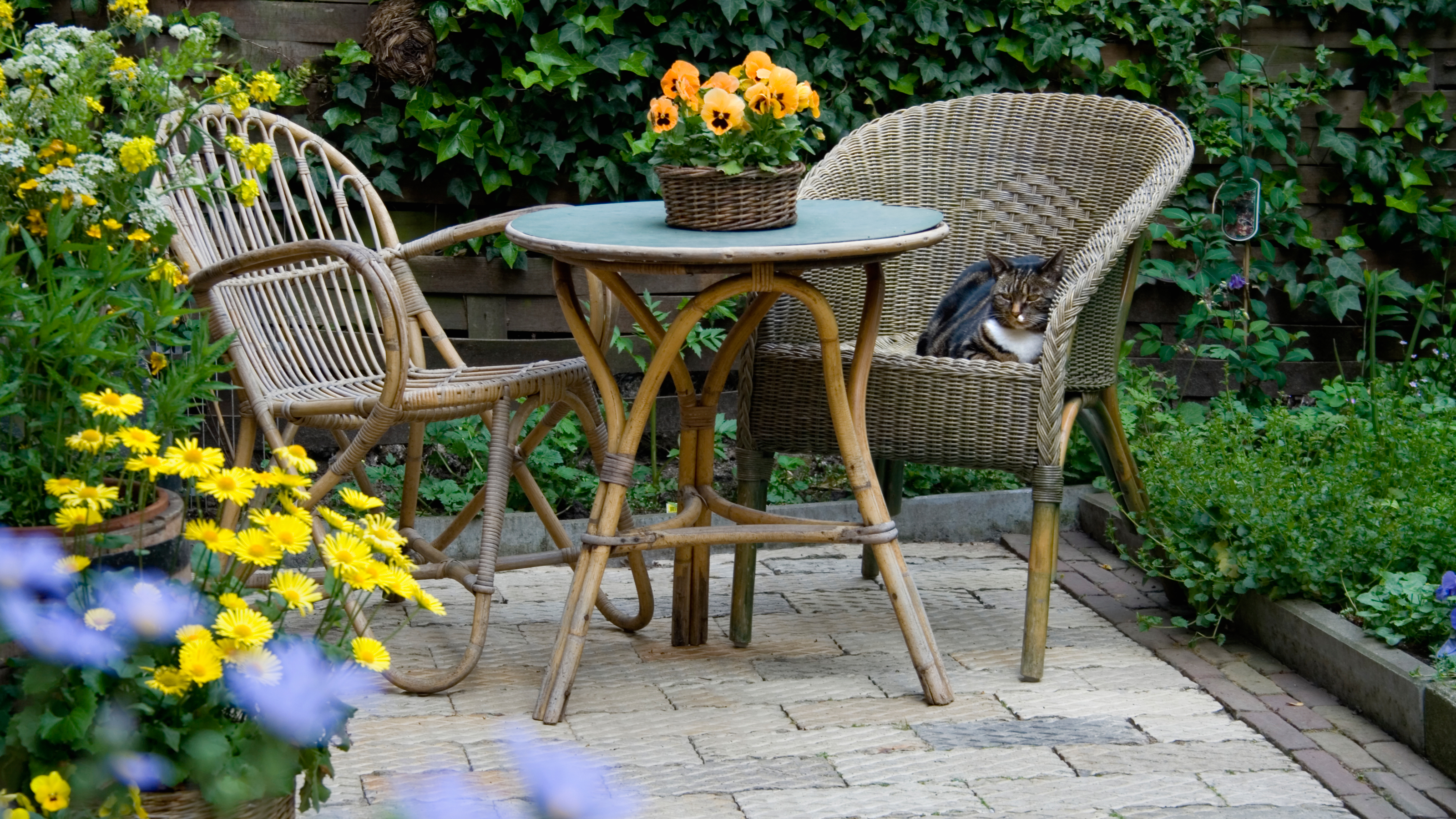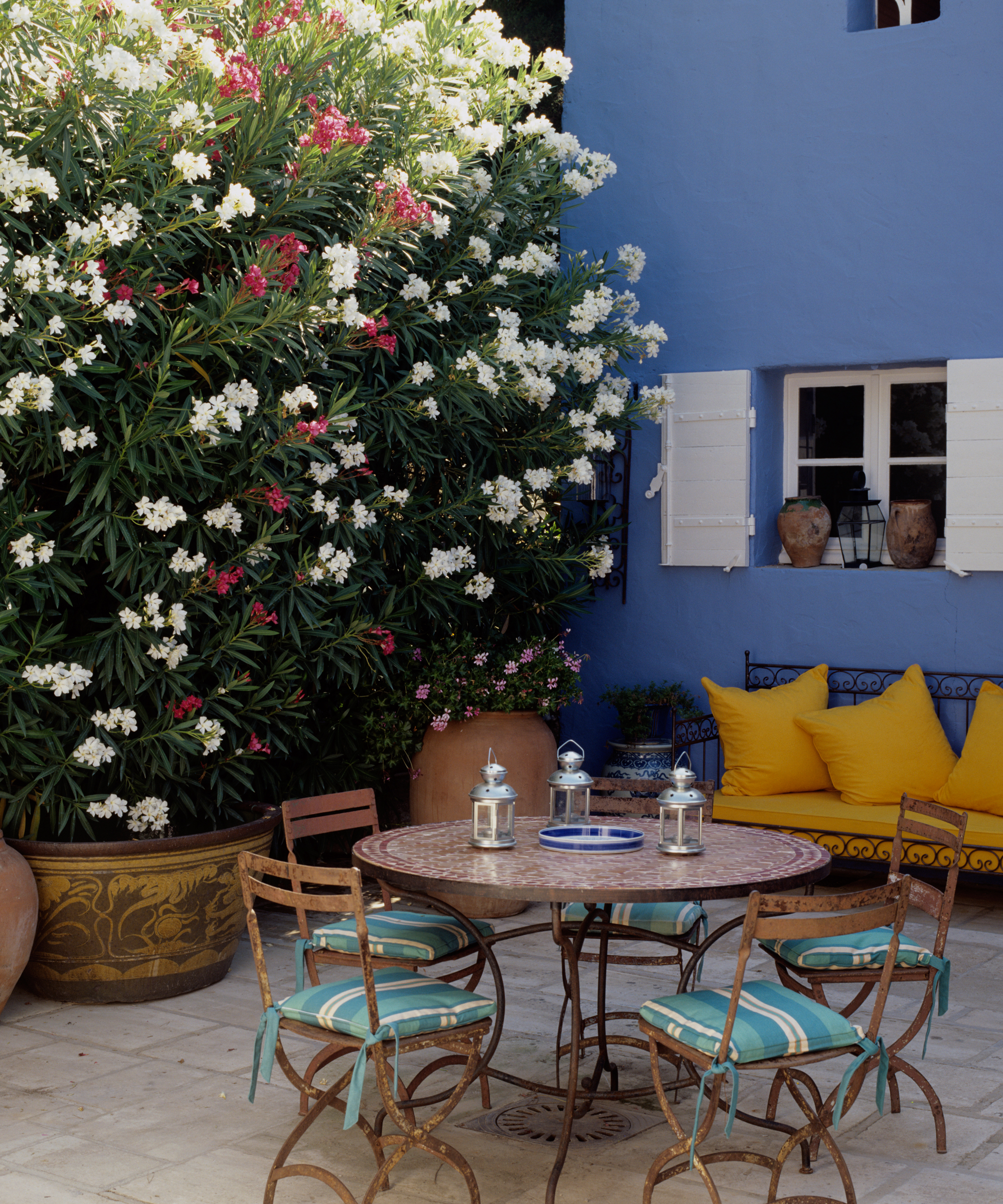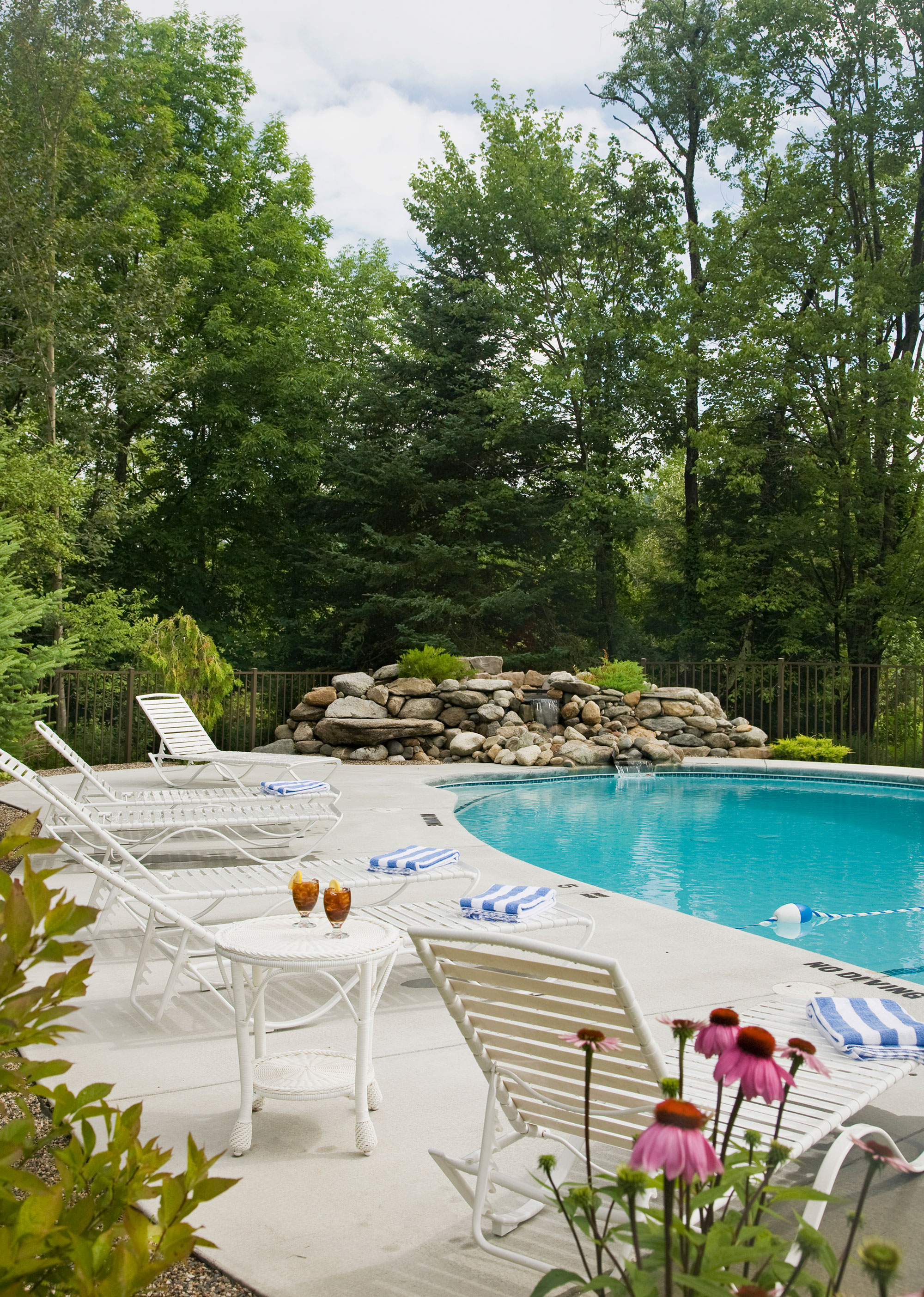Should you use muriatic acid in your garden? Everything you need to know
Should you use muriatic acid in your garden, either for cleaning or in your soil? Experts weigh in with their views

Should you use muriatic acid in your garden? Muriatic acid is often promoted online as a powerful cleaning agent used on dirty patio slabs and swimming pools. It is sometimes even suggested as a soil acidifier for very alkaline soils.
It's an inexpensive ingredient that can make it seem more attractive than commercial cleaners and soil treatments. But should you really use it just because it's readily available?
It may be tempting if your patio ideas for the summer involve sparkling clean patio stones or a squeaky clean pool. We've asked health and gardening experts for their views.
What is muriatic acid?
You may or may not have heard of muriatic acid; if you haven't, it's because until very recently, it was confined to highly specialized uses, including leather processing, professional home restoration projects, and professional-level drain cleaning.
Note that none of these are your typical home uses and no wonder. Muriatic acid is a slightly less strong form of hydrochloric acid (less strong because it hasn't been purified).
It's very, very acidic, with a pH ranging between 1 and 2. By comparison, citric acid, contained in lemon juice, has a pH of between 3 and 6.
What you're dealing with is a very, very strong chemical, and you should think twice about using it anywhere in your home – and especially in your backyard.

Should you use muriatic acid in your garden?
Jolene Caufield, Senior Advisor with a Masters in Science at Healthy Howard, points out that 'using muriatic acid in your backyard for cleaning or killing weeds can be hazardous not only to your health but to your plants as well.' One of the first things you'll notice about this acid is its 'pungent odor' – so strong that it 'alone is enough to sting your eyes and nose.'
The other property of this acid that makes it particularly tricky to use in your garden is its thin substance. Joelene warns that 'it can easily splash and whatever it hits can easily burn whether it’s your plant’s leaves, roots, or even your eyes or skin.'
If you need more convincing against using this acid on a DIY basis, Jolene explains that 'inhaling the acid fumes can immediately burn the lining of the nose and lungs.'
The verdict is very clear: 'Avoid using muriatic acid in your homes for your family’s protection.'
Can I use muriatic acid to change my soil pH?
If you're a committed gardener, you've probably heard about the importance of soil pH, explained in our guide to soil types. But can you use diluted muriatic acid to make very alkaline soil more acidic?
Gardening expert and CEO of Lawn Love Jeremy Yamaguchi is not convinced. He believes that muriatic acid could, in theory, be used to neutralize the alkaline content in your soil, 'but the risks are high.'
'Muriatic acid doesn't dissolve or disperse very well in the soil, meaning more of it exists that humans, pets, and plants can come into contact with,' he explains.
In other words, no, don't use it to treat your soil. Instead, Jeremy recommends 'a nitrogen-based fertilizer' – this should meet most plants' needs, even if your soil is more alkaline than you'd like.

Can muriatic acid be used to clean a swimming pool?
Yes, this is the one backyard use that muriatic acid is suitable for. Peter Rossi, who runs a business specializing in tubs, spas, and household appliances, calls muriatic acid a 'powerful' and 'potent cleaning agent' suitable for giving a swimming pool a deep clean. However, muriatic acid must be correctly diluted before being used for this purpose.
Peter points out, you must 'avoid opening the bottle in a confined location since the vapors are pretty harmful.'
You will also have to wear protective equipment while cleaning, so you may as well leave this big pool maintenance job to swimming pool maintenance professionals.
Unless you have a pool at home we would recommend leaving the muriatic acid out of your shopping basket.
Anna writes about interior design and gardening. Her work has appeared in Homes & Gardens, Livingetc, and many other publications. She is an experienced outdoor and indoor gardener and has a passion for growing roses and Japanese maples in her outside space.
